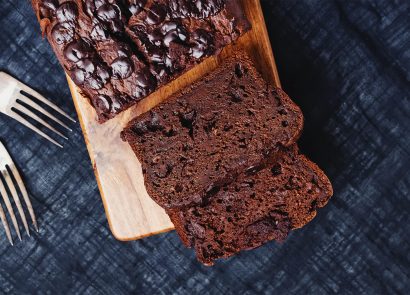High cholesterol can affect anyone at any age, it’s not fussy, but becoming more aware and particular about the foods we eat to lower cholesterol could make for a happy heart in no time at all!
Over half of adults in the UK and Ireland have raised cholesterol – cardiovascular disease is still Britain’s most common cause of death – yet high cholesterol is often termed the ‘silent killer’, as it doesn’t necessarily result in obvious symptoms.
Here, nutritionist Barbara Cox offers seven tips for reducing cholesterol levels within weeks.
1. BOOST YOUR BREAKFAST
Start your day with oats – it’s been scientifically proven to have a positive effect on heart health.
Studies show that oats’ beta-glucan content can reduce bad cholesterol levels, while good cholesterol levels remain unaffected. Just 3g of oat beta-glucan per day is enough to actively reduce the amount of blood cholesterol and protect us from the risk of heart disease.
2. GO NUTS IN THE OFFICE
If you fancy a snack at work, then choose nuts! Those that are higher in unsaturated (mono and poly) fats and lower in saturated fats are best.
These include almonds, walnuts, pecans, hazelnuts and pistachios.
Try making up a trail mix with your favourite raw and unsalted nuts, dried fruit and a mix of seeds such as chia and flax.
3. MOVE AROUND MORE
Studies have shown that sitting all day can increase your risk of developing high blood pressure and high cholesterol.
When we sit down our fat and sugar-processing stops. Standing up and moving around can help to break down fats and sugars more efficiently in the body. Get up and move around periodically during the day – your body and your brain will both thank you for it.
30 minutes or more of regular aerobic movement, done most days of the week, can up the good cholesterol levels in the body. Pair your new exercise regime with healthy eating habits for the best results.
4. DON’T FEAR ALL FATS
Monounsaturated fats can lower bad cholesterol levels. These include many oils that are liquid at room temperature, such as olive oil, peanut oil, and sesame oil. Choose them over fats that are solid at room temperature, like coconut, butter, and lard.
Try to limit or reduce saturated fats – things like cheese, red meat, butter and full-cream milk can raise your total cholesterol. Avoid artery-clogging processed foods, fast foods and fry ups. If you eat meat, it’s best to eat lean meat, or poultry such as chicken.
Another option is to try a plant-based diet instead.
Eating beans and other fibre-rich foods can reduce how much cholesterol gets absorbed in your bloodstream.
Legumes such as chickpeas, lentils, beans and peas are good for people with high cholesterol levels because they’re low in fat and rich in nutrients, such as B vitamins, iron and unsaturated fats.
They’re also a rich source of soluble fibre, which helps to lower cholesterol levels.
5. SPICE UP YOUR LIFE
Give your food flavour by using less salt (try to keep your salt intake to under 6g a day), and more herbs, spices and garlic. Studies show that garlic lowers levels of bad cholesterol and raises good cholesterol.
It also helps to thin the blood, which reduces the risk of heart attacks.
6. ABSTINENCE MAKES THE HEART GROW STRONGER
In the evening, cut back back on the booze and stop smoking.
Abstaining from these things may be easier said than done, but try to reduce your intake as a first step. Your heart will thank you and you’ll get a better night’s sleep!
7. GET ENOUGH SHUT-EYE
Talking of sleep, lack of rest is a common contributor to heart disease and stroke.
Try to focus on your hibernation habits, which means no electronic devices in bed, a cool temperature in the house, and a minimum of seven or eight hours of shut-eye each night.
For more information on lowering your cholesterol, head over to oatwell.co.uk






















